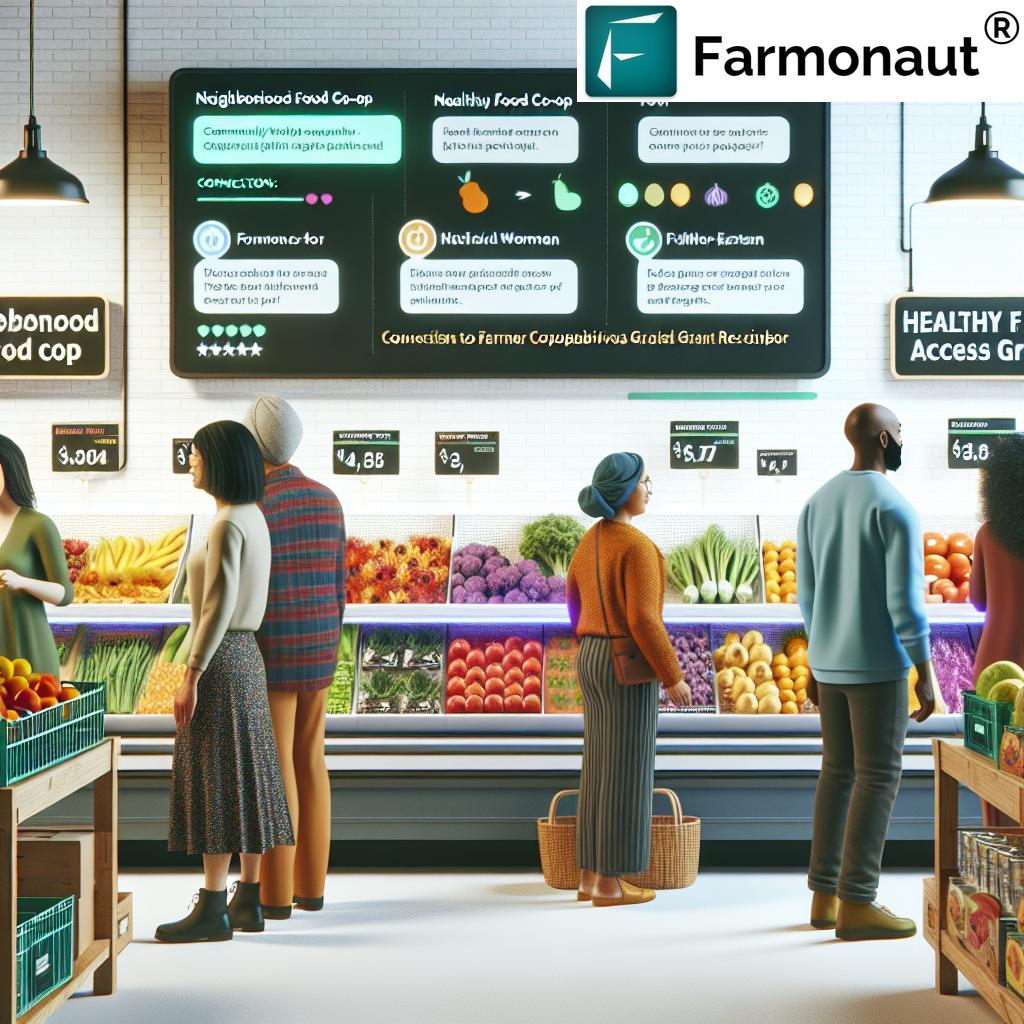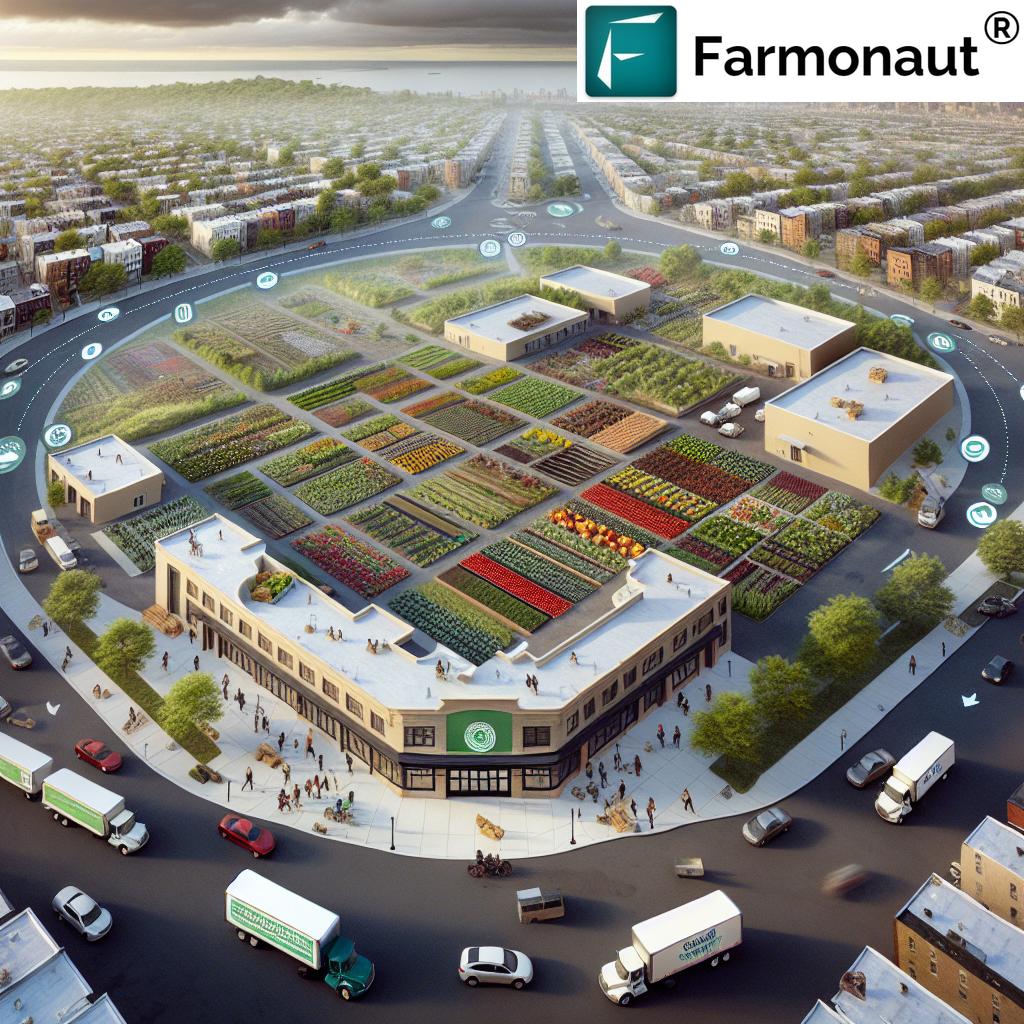Revolutionizing Food Access: USDA Grants Empower Local Co-ops to Transform Food Deserts
WILMINGTON, N.C. – In a groundbreaking initiative to combat food insecurity, the U.S. Department of Agriculture (USDA) has awarded $576,000 in healthy food access grants across North Carolina. This significant funding, part of the Healthy Foods Financing Initiative (HFFI), aims to revolutionize access to nutritious food in underserved communities, with a particular focus on transforming food deserts into thriving hubs of community-driven nourishment.

USDA Food Initiatives: A Beacon of Hope for Food Deserts
The USDA’s partnership with Reinvestment Fund through the Healthy Foods Financing Initiative grants program marks a pivotal moment in addressing food insecurity. These grants are designed to support community food cooperatives and local initiatives that aim to bring fresh, healthy food options to areas traditionally lacking such resources.
Key aspects of this initiative include:
- Empowering local communities to create sustainable food systems
- Supporting the development of community-focused grocery stores
- Fostering partnerships between local food hubs and Black farmer cooperatives
- Addressing systemic racism and economic challenges in food distribution
For those interested in leveraging technology to support agricultural initiatives, check out the Farmonaut Satellite API for valuable agricultural insights.
Spotlight on Wilmington: The Northside Food Co-op
A shining example of the USDA’s impact is the allocation of $126,000 to the Wilmington Northside Food Co-op. This project exemplifies the potential of community food co-ops in food deserts to create lasting change.
The Northside Food Co-op Wilmington is set to become a beacon of hope in the historically underserved Northside neighborhood. This initiative goes beyond just providing food; it’s about building a community-centered ecosystem that nurtures both physical and economic health.
Key Objectives of the Northside Food Co-op:
- Implement comprehensive training programs for local residents
- Recruit a skilled General Manager to oversee operations
- Create employment opportunities for Northside residents
- Establish partnerships with local food hubs and Black farmer cooperatives
- Support BIPOC-owned businesses to address systemic economic challenges
For farmers and agricultural enthusiasts, the Farmonaut Android App offers valuable tools for crop management and monitoring.

Community-Driven Food Desert Solutions
The USDA’s approach to tackling food deserts through community-driven food desert solutions is revolutionary. By empowering local communities to take charge of their food systems, these initiatives ensure long-term sustainability and tailored solutions that address specific local needs.
Benefits of this community-centric approach include:
- Enhanced community engagement in food security issues
- Creation of local job opportunities
- Promotion of cultural relevance in food choices
- Strengthening of local economies
- Improved health outcomes through better nutrition access
For comprehensive agricultural data and insights, explore the Farmonaut Web App.
The Ripple Effect: Beyond Food Access
The impact of these USDA healthy food access grants extends far beyond merely providing access to fresh produce. They catalyze a series of positive changes within communities:
- Economic Revitalization: By creating jobs and supporting local businesses, these initiatives inject vital economic energy into underserved areas.
- Health Improvement: Access to fresh, nutritious food is a cornerstone of community health, potentially reducing rates of diet-related diseases.
- Community Empowerment: These projects foster a sense of ownership and pride within the community, encouraging further grassroots initiatives.
- Education and Skill Development: Training programs associated with these co-ops provide valuable skills to community members, enhancing their employability.
- Sustainable Agriculture: Partnerships with local farmers promote sustainable agricultural practices and shorter supply chains.
iOS users can benefit from the Farmonaut iOS App for agricultural monitoring and management on the go.
Challenges and Future Prospects
While the USDA’s initiative marks a significant step forward, challenges remain in fully transforming food deserts:
- Ensuring long-term financial sustainability of community co-ops
- Overcoming logistical hurdles in food distribution
- Addressing deeply rooted systemic inequalities
- Maintaining community engagement and participation over time
However, the success of projects like the Northside Food Co-op Wilmington provides a blueprint for future initiatives. As more communities adopt this model, we can expect to see a gradual but significant transformation of food deserts across the nation.
The Role of Technology in Supporting Food Access Initiatives
In today’s digital age, technology plays a crucial role in enhancing the effectiveness of food access initiatives. Tools like the Farmonaut Satellite API Developer Docs can provide valuable insights for agricultural planning and management, supporting the efforts of local food hubs and cooperatives.
Conclusion: A New Era of Food Equity
The USDA’s grant program, exemplified by the Wilmington Northside Food Co-op, represents a paradigm shift in addressing food insecurity. By empowering communities to create their own food desert solutions, this initiative paves the way for a more equitable and sustainable food system.
As these projects take root and flourish, they not only provide immediate relief to food deserts but also sow the seeds for long-term community development and empowerment. The success of these initiatives could very well mark the beginning of a nationwide transformation in how we approach food access and community health.
In the words of a local Wilmington resident, “This co-op isn’t just about food. It’s about hope, community, and taking control of our future. It’s about showing what’s possible when we come together.”
As we look to the future, the USDA’s commitment to supporting underserved neighborhood development through innovative food access solutions promises to bring about lasting change in communities across America. The journey from food desert to thriving community hub has begun, and the fruits of this labor are sure to nourish generations to come.


